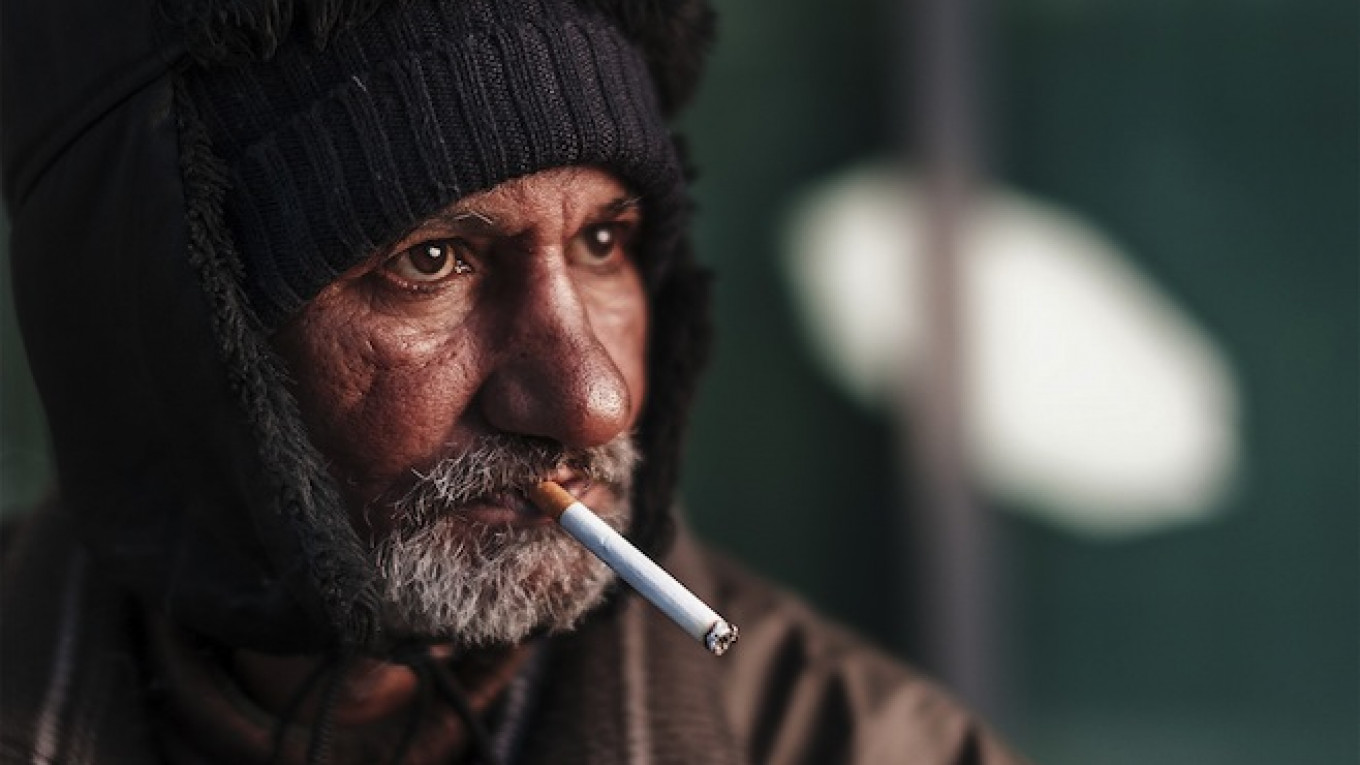The government has opposed plans to renew sales of cigarettes at Russia's newsstands, despite the pleading of print media editors who hoped tobacco would lure more people to kiosks and boost newspaper sales, the Kommersant daily reported Wednesday.
Street kiosks were barred from selling tobacco products on June 1 last year, as part of a crackdown on smoking that saw the practice banned in cafes, restaurants and other public places in 2013.
However, the prohibition came into force just as the Russian economy began to slow and advertising revenue for newspapers and magazines shrank, leading the editors-in-chief of newspapers Rossiiskaya Gazeta, Moskovsky Komsomolets, Komsomolskaya Pravda and Argumenty i Fakty to write a letter to President Vladimir Putin earlier this year requesting the return of cigarettes to the kiosks, according to Kommersant.
But ministers will rebuff proposed legislative amendments that would legalize sales of cigarettes in kiosks where the sales of periodicals account for more than 50 percent of turnover, Kommersant reported Wednesday citing government documents.
Ministers said the economic justification for the plan was unclear and that cigarette sales at newsstands would undermine efforts to protect people from exposure to tobacco smoke, the paper reported.
Around two-fifths of Russian adults smoked last year, according to data from the World Health Organization — though Russia's Health Ministry has claimed that number is falling. The Russian Press Distributors Association, a lobby group, has said that selling cigarettes at newsstands raised sales of periodicals by 20-30 percent, the Vedomosti newspaper reported in June.
A Message from The Moscow Times:
Dear readers,
We are facing unprecedented challenges. Russia's Prosecutor General's Office has designated The Moscow Times as an "undesirable" organization, criminalizing our work and putting our staff at risk of prosecution. This follows our earlier unjust labeling as a "foreign agent."
These actions are direct attempts to silence independent journalism in Russia. The authorities claim our work "discredits the decisions of the Russian leadership." We see things differently: we strive to provide accurate, unbiased reporting on Russia.
We, the journalists of The Moscow Times, refuse to be silenced. But to continue our work, we need your help.
Your support, no matter how small, makes a world of difference. If you can, please support us monthly starting from just $2. It's quick to set up, and every contribution makes a significant impact.
By supporting The Moscow Times, you're defending open, independent journalism in the face of repression. Thank you for standing with us.
Remind me later.






